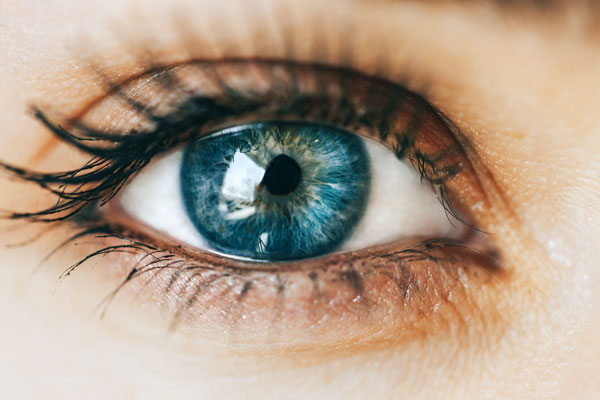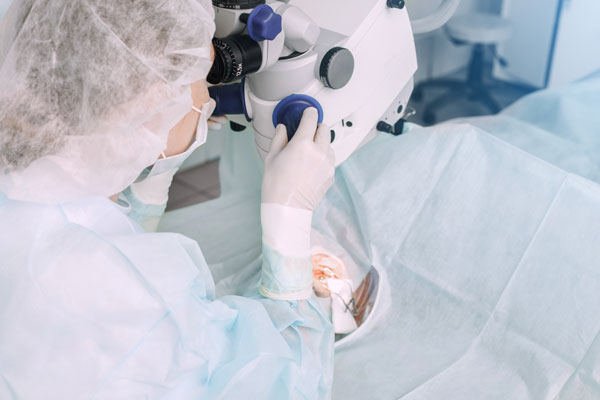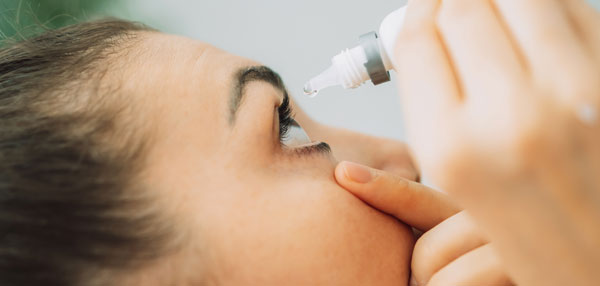How long does it take to recover from Cataract Surgery?

You may think that after the cataract surgery, everything would be fine after consulting the cataract surgeon about it. Little do you know there is more than just what meets the eye regarding on the recovery of the cataract surgery.
What is Cataract Surgery?
Cataract surgery is a procedure of the eye that removes and replaces a lens that has become cloudy. The vast majority of patients achieve improved, sharper vision, but this is not necessarily immediate. Most people would prefer a bladeless cataract surgery which is much safer and easier.
Some patients see well just in a few days after cataract surgery, but the full healing can take up to three months. Cataract surgery recovery time tends to be minimal and mild but there are various factors that can impact the speed of recovery.
What is a typical cataract surgery recovery time?

Do not be alarmed if your vision seems cloudy, blurry or distorted when you first remove the eye shield. It can take some time for your visual system to adjust to the removal of the cataract and adapt to the intraocular lens used to replace your eye’s natural lens.
During this adjustment period, some patients even report seeing “wavy” or distorted vision. This phenomenon should only last for about an hour, if there is one. You can also develop red, bloodshot eyes because the blood vessels in the “white” of your eye (sclera) are temporarily damaged during cataract surgery. If your eye heals, the redness should go away in a few days.
If you have had anesthetic injected through the skin at the bottom of your eye, you may notice bruising similar to a black eye. Again, this should go away in a few days. Many patients report having clear vision within hours of cataract surgery. But they all heal differently and it can take up to a week or two to see the images in their sharpest definition.
Usually, you will be scheduled to see the surgeon for cataracts the next day after surgery to make sure there are no complications. If you do not notice any improvement in your blurred vision for a few days after this visit, or if you experience eye pain or significant discomfort, you should inform your cataract surgeon. Occasionally, people report dry eyes or “itching” after cataract surgery. These sensations should go away as your eyes heal, unless you already had dry eye problems prior to the procedure. Complete recovery from cataract surgery should occur in about a month, when the eye is fully healed.
The Dos and Don’ts of Cataract Surgery
For the first few weeks after surgery here are some dos and don’ts that you should
Dos
- Use your eye drops as instructed
- Take it easy for the first 2 to 3 days
- Use your eye shield at night for at least a week
- Take painkiller if you need to
- Bath or shower yourself usual
- Wear your eye shield when washing your hair
- Read, watch TV and use a computer ( after a few hours of the surgery)
- Avoid swimming for 4 to 6 weeks
- Use your shield, old glasses or sunglasses outdoors
Don’ts
- Do not rub your eyes
- Do not allow soap or shampoo to get into your eyes
- Do not drive until you get the all clear from your doctor
- Do not do any strenuous exercise or housework
- Do not wear eye makeup for at least 4 weeks
- Do not fly without seeking advice from your doctor
You could arrange for someone you trust to help take care of you until your vision returns, particularly if the vision in your eyes are poor. If you were to work, how soon you are able to return will largely depend on the type of job and if you need new glasses.
For the best cataract surgery recovery possible, follow your doctor’s detailed instructions about how to protect your eye following your procedure. Usually these instructions will be given to you as a handout that you can take home with you on the surgery day. If you need cataract surgery in both eyes, your surgeon usually will wait at least a few days to two weeks for your first eye to recover before performing a procedure on the second eye.
Using your eye drop
Before you leave the hospital, you will be given some eye drops to help your eye heal and prevent infection. It is important to use your eye drops as instructed by your doctor. Unless you were told otherwise, you should:
- Start your drops the morning after the operation
- Only use them on an operated eye
- Wash your hands before using your drops
- Do not stop your eye drops without advice from you doctor
- Do not let anyone else use your eye drops
You will be advised further about the use of eye drops at your follow up appointment, usually 1 to 4 weeks after your operation. At this appointment, you may be given information on when to stop using your eye drops and when to apply for new glasses.

How to clean your eye
- Boil some water and allow it to cool
- Wash your hands
- Dip cotton wool or clean gauze in the cool boiled water
- Gently wipe from the inside (near your nose) to the outside corner of your eye
- Do not wipe your eye
- Do not wash your eye out with water
- Do not press on your eye
During the first 2 weeks, you may need to clean your eyes twice a day because the drop and the healing process can cause slight stickiness.
If you were to want to have a cataract surgery done, you can go to any Singapore cataract surgery clinic. They provide you with more information about the cataract surgery itself and make an appointment with the cataract surgeon. Cataract surgery in Singapore is known to use the bladeless cataract surgery method which is much more efficient and faster. We hope that the information we give you will help you further understand on how you are able to take care of your eyes after the cataract surgery.

